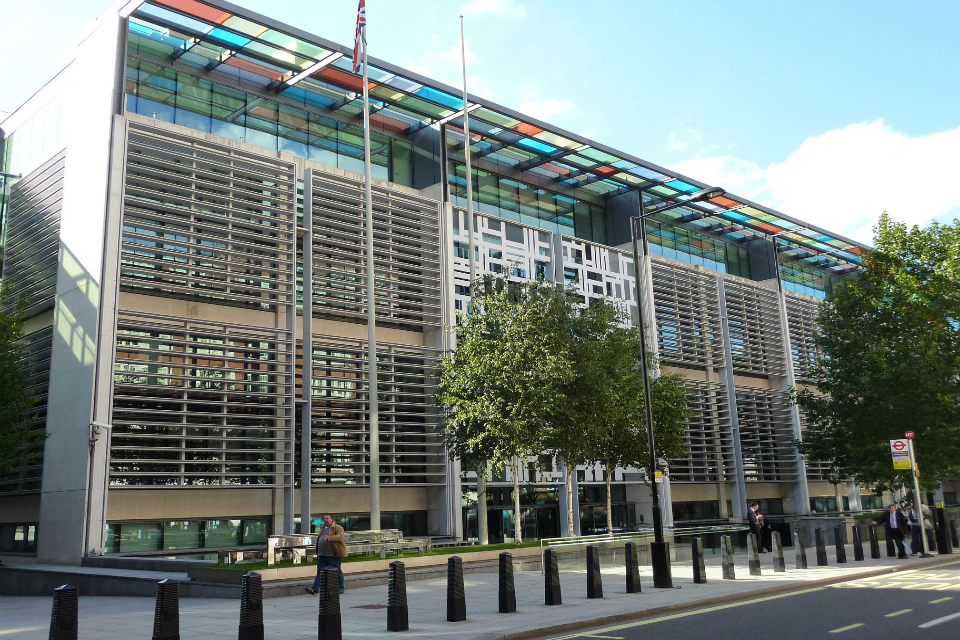Building homes on brownfield land will be turbocharged under a major shake-up to planning rules to boost housebuilding while protecting the Green Belt.
As part of its long-term plan for housing, the Government has announced today that every council in England will be told that they will need to prioritise brownfield developments and instructed to be less bureaucratic and more flexible in applying policies that halt housebuilding on brownfield land.
The bar for refusing brownfield plans will also be made much higher for those big city councils who are failing to hit their locally agreed housebuilding targets. Planning authorities in England’s 20 largest cities and towns will be made to follow a ‘brownfield presumption’, if housebuilding drops below expected levels. This will make it easier to get permission to build on previously developed brownfield sites, helping more young families to find a home.
The raft of policy measures announced today show the Government taking immediate action on its long-term plan for housing, which will deliver homes in the areas that need and want them the most – such as in big cities, where there is the highest demand and existing infrastructure to support new development. The focus on brownfield land and urban development is part of the Government’s plan to take a common sense to delivering the housing that is needed, protect the countryside and Green Belt.
In this Parliament the Government has delivered the highest number of new homes in a year for three decades. These reforms will further support developers aiming to undertake major regeneration on brownfield sites, giving them more certainty by ensuring their plans are not unnecessarily blocked or held up by red tape. Analysis published today as part of the London Plan Review shows that new brownfield presumption in the capital could potentially result in up to 11,500 additional homes per year. And by extending the reforms across the country, more homes will be unlocked than if action had been taken in London alone.
A consultation on these proposals will launch today and run until Tuesday 26 March, and the Government will look to implement these changes to national planning policy as soon as possible.
The Government plans to introduce these changes in London as a result of poor housing delivery in the capital, putting rocket boosters under brownfield regeneration projects.
The Government is also helping developers overcome tiresome bureaucracy by slashing red tape that stops derelict sites and unused buildings being turned into new homes. Legislation laid in Parliament today will extend current Permitted Development Rights, so that commercial buildings of any size will have the freedom to be converted into new homes – this means shops, offices, and other buildings all quickly repurposed, resulting in thousands of quality new homes by 2030.
Millions of homeowners will also be empowered to extend their homes outwards and upwards, as the Government is today launching a consultation on proposals that would see more new extensions or large loft conversions freed from the arduous process of receiving planning permission.
Prime Minister Rishi Sunak said:
We pledged to build the right homes in the right places – protecting our precious countryside and building more in urban areas where demand is highest. Today’s package is us delivering on that.
We are sticking to our plan and are on track to meet our commitment to deliver one million homes over the course of this Parliament, and the changes announced today will deliver the right mix of homes across England.”
Housing Secretary Michael Gove said:
Today marks another important step forward in our Long-Term Plan for Housing, taking a brownfield first approach to deliver thousands of new homes where people want to live and work, without concreting over the countryside.
Our new brownfield presumption will tackle under delivery in our key towns and cities – where new homes are most needed to support jobs and drive growth.
In a major intervention before Christmas, Secretary of State Michael Gove asked Christopher Katkowski KC to lead a review of the London Plan – in light of consistent disappointing housing delivery in the capital. Today the Department for Levelling Up, Housing and Communities has published Katkowski’s review which recommended a presumption in favour of brownfield development.
However, to tackle development in the country’s other large cities and towns, the Government is proposing to apply this presumption to all of the 20 most populous urban areas where development has fallen below acceptable levels. This new approach will put rocket boosters under brownfield regenerations projects across the country and provide the new homes the country needs, without affecting existing protections including for residential gardens, and ensuring protection for the character of suburban neighbourhoods.
Christopher Katkowski KC, Lead Reviewer of the London Plan said:
“I am delighted to see the idea which I together with my colleagues on the London Plan Review came up with of a planning policy presumption in favour of delivering new homes on brownfield sites being taken forward on a wider scale as part of a suggested change to the NPPF. The inspiration for the brownfield presumption came from the NPPF in the first place and so it is good to see the idea being brought back to its roots as an additional lever to encourage the delivery of new homes. I see this as a worthwhile and welcome change.”
Notes to editors:
- National Planning Policy Framework currently provides for a presumption in favour of sustainable development to be applied to a local authority where it scores below 75% in the Housing Delivery Test. The Government is proposing that, for the twenty urban uplift areas, this presumption should be applied for applications on previously developed land (brownfield land) where an area scores below 95%.
- The London Plan Review indicates that if a brownfield presumption in London resulted an acceleration of decisions to a rate in line with the next four largest cities or returned residential applications to the pre-London Plan approval rate and the rates of net additions previously achieved from those approvals, there could be between 4,000 and 11,500 additional homes per year in the capital.
- We are already on track to meet the manifesto commitment to build one million homes over this Parliament. The Government have delivered over 2.5 million more homes since 2010, including almost 696,000 affordable homes and supported over 876,000 households into home ownership. This Parliament we have delivered the highest number of new homes in over three decades, helping create the highest number of first-time buyers in single year in two decades.
- Between 1997 and 2010, average housing delivery was over 170,000 a year. Since 2019, we have delivered over 233,000 new homes a year on average.
Further quotes:
Mark Allan, Chief Executive, Landsec
“Landsec has been campaigning to unlock more economic growth, more homes and more jobs by refocusing national planning policy on the opportunities provided by brownfield urban regeneration. The emphasis on maximising housing development in urban areas set out today means that we can seize some of those opportunities, deliver more homes and secure better outcomes for cities and the people who live there.”
David Thomas, Chief Executive, Barratt Developments
“We welcome any efforts to make it easier to get planning permission, particularly for brownfield regeneration which is already naturally a more complicated and capital-intensive process. Industry and local and national government need to work together to find ways of delivering more new homes more quickly, including on previously developed land, and this is a positive step.”
Simon Carter, Chief Executive, British Land
“Today’s announcement is another important step towards unlocking the potential of brownfield urban regeneration. British Land has consistently advocated for practical, deliverable planning reform which prioritises brownfield development, accelerates the pace of housing delivery and helps to secure long-term sustainable growth, by intensifying development in urban areas where it is needed most.”
Baroness O’Neill of Bexley said:
“London needs more housing and I welcome the Government’s focus of ensuring we see more homes on brownfield sites. Our communities rightly want to see greenbelt and parks protected from development and that means we have to concentrate on regenerating existing brownfield land.”









